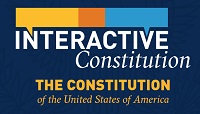Can an employment lawsuit be based on the premise that discrimination based on sexual orientation is a Title VII violation under the Civil Rights Act of 1964?
On Feb. 26, 2018, the Second Circuit Court of Appeals said in a 10-3 decision in Zarda v. Altitude Express Inc. that sexual orientation discrimination constitutes a form of discrimination “because of . . . sex,” in violation of Title VII.
Some legal experts have predicted that the case might eventually make its way to the Supreme Court. Last April, the Seventh Circuit ruled in a separate case that Title VII could be applied to a similar workplace situation. But the Supreme Court passed on a third case, out of Georgia, that dealt with the same issue.
Joining us on this podcast are two experts with different takes on this question.
FULL PODCAST
RECAP
PARTICIPANTS
 John Eastman is Henry Salvatori Professor of Law and Community Service
John Eastman is Henry Salvatori Professor of Law and Community Service
and Former Dean at Chapman University Law School. He is also the Director of the University’s Center for Constitutional Jurisprudence.
 Suzanne Goldberg is Herbert and Doris Wechsler Clinical Professor of Law at Columbia Law School, where she also directs the Law School’s Center for Gender and Sexuality Law and its Sexuality and Gender Law Clinic.
Suzanne Goldberg is Herbert and Doris Wechsler Clinical Professor of Law at Columbia Law School, where she also directs the Law School’s Center for Gender and Sexuality Law and its Sexuality and Gender Law Clinic.
 Jeffrey Rosen is the President and Chief Executive Officer of the National Constitution Center, the only institution in America chartered by Congress “to disseminate information about the United States Constitution on a nonpartisan basis.” He is also a professor at The George Washington University Law School, and a contributing editor for The Atlantic.
Jeffrey Rosen is the President and Chief Executive Officer of the National Constitution Center, the only institution in America chartered by Congress “to disseminate information about the United States Constitution on a nonpartisan basis.” He is also a professor at The George Washington University Law School, and a contributing editor for The Atlantic.
Related Decisions and Documents
- Title VII of the Civil Rights Act of 1964, (42 U.S.C. § 2000e)
- EEOC decision in Baldwin v. Dep't of Transportation, EEOC Appeal No. 0120133080, July 15, 2015
- Opinion in Zarda v. Altitude Express (2nd Cir. 2018), decided February 26, 2018
- Opinion in Hiveley v. Ivy Tech Community College of Indiana (7th Cir. 2017), decided April 4, 2017
- Opinion in Evans v. Georgia Regional Hosp. (11th Cir. 2017), decided March 10, 2017
- Opinion in Oncale v. Sundowner Offshore Servs. 523 US 75 (1998), U.S. Supreme Court, decided May 4, 1998
- Opinion in Price Waterhouse v. Hopkins, 490 US 228 (1989), U.S. Supreme Court, decided May 1, 1989
- Opinion in Meritor Savings Bank v. Vinson, 477 US 57 (1986), U.S. Supreme Court, decided June 19, 1986
Additional Resources
 Our Interactive Constitution is the leading digital resource about the debates and text behind the greatest vision of human freedom in history, the U.S. Constitution. Here, scholars from across the legal and philosophical spectrum interact with each other to explore the meaning of each provision of our founding document.
Our Interactive Constitution is the leading digital resource about the debates and text behind the greatest vision of human freedom in history, the U.S. Constitution. Here, scholars from across the legal and philosophical spectrum interact with each other to explore the meaning of each provision of our founding document.
Common Interpretation
The 14th Amendment's Equal Protection Clause By Brian Fitzpatrick and Theodore M. Shaw
Matters of Debate
The Future of Racial Preferences by Brian Fitzpatrick
The Unfinished Work of the Equal Protection Clause by Theodore M. Shaw
Stay Connected and Learn More
Continue today’s conversation on Facebook and Twitter using @ConstitutionCtr.
Sign up to receive Constitution Weekly, our email roundup of constitutional news and debate, at bit.ly/constitutionweekly.
Please subscribe to We the People and our companion podcast, Live at America’s Town Hall, on iTunes, Stitcher, or your favorite podcast app.
We the People is a member of Slate’s Panoply network. Check out the full roster of podcasts at Panoply.fm.
The Constitution Center is offering CLE credits for select America’s Town Hall programs! Click here to learn more.
And finally, despite our congressional charter, the National Constitution Center is a private nonprofit; we receive little government support, and we rely on the generosity of people around the country who are inspired by our nonpartisan mission of constitutional debate and education. Please consider becoming a member to support our work, including this podcast.
Questions or comments? We would love to hear from you. Contact the We the People team at [email protected]







